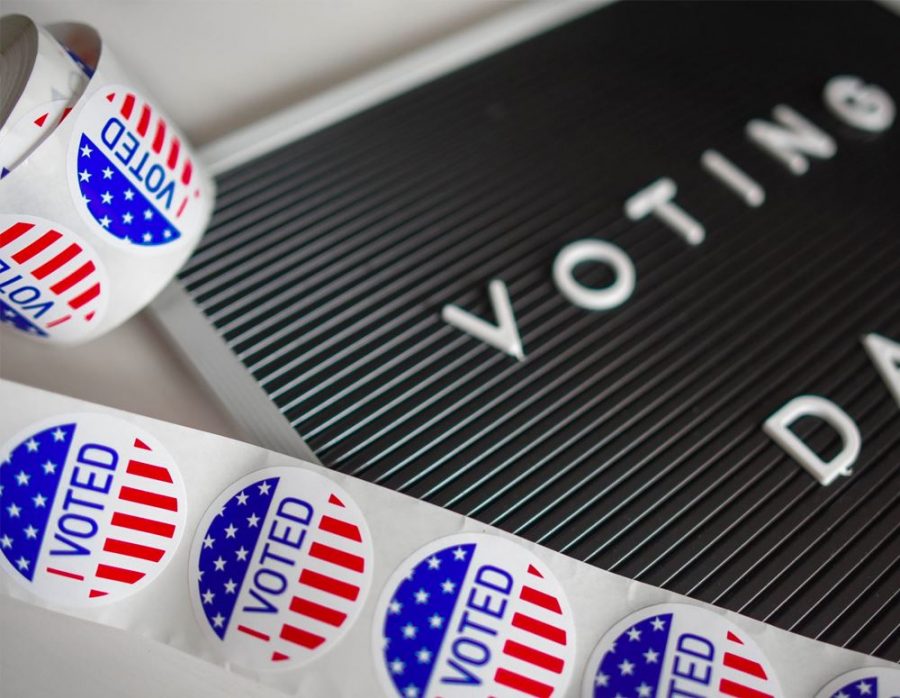Voter Registration Information for High School Students
Voter Registration Information for High School Students
Pursuant to N.J.S.A. 18A:36-27, The High School Voter Registrations Law requires districts to provide eligible voters registration materials, a summary of voter registration eligibility requirements, materials describing the role of a citizen, and materials articulating the importance of voting to all eligible high school students. Please see below for this information.
Voter Registration Eligibility Requirements & Registration Information
To register in New Jersey, you must be:
- A United States citizen
- At least 17 years old, though you may not vote until you have reached the age of 18
- A resident of the county for 30 days before the election
- A person not serving a sentence of incarceration as the result of a conviction of any indictable offense under the laws of this or another state or of the United States.
The registrant must complete a Voter Registration Application and/or Party Affiliation Form. Mail or deliver the Voter Registration Application and/or Party Affiliation Form to the County Commissioner of Registration (address on application).
Online Voter Registration
To register online, you will need your date of birth and one of the following forms of identification:
1) A current and valid Driver’s License or a non-driver Identification Card (ID card) issued by the New Jersey Motor Vehicle Commission (MVC) Your information will be provided to the MVC to validate identification, and to retrieve a copy of your digitized signature.
-or-
2) A Social Security number. To use your social security number, you must have the ability to sign on-screen or upload your signature to complete the registration process. If you are unable to provide a digital signature, you cannot register online. Click here to download the voter registration application for Monmouth County.
You are not eligible to register to vote if you are serving a sentence of Incarceration as a result of a conviction of an indictable offense under the laws of this or another state or of the United States.
The registration deadline to vote in the next election is 21 days prior to the election day. Responsibilities of United States Citizens
From http://www.civics.ks.gov/index.html
Citizenship Responsibilities
Citizenship is the state of being vested with the rights, privileges and duties of a citizen, but it can also be defined as the character of an individual viewed as a member of society. While U.S. citizenship provides many rights, it also involves many responsibilities. The U.S. government, as established in the Constitution, protects the rights of each individual regardless of background, culture or religion. Although all U.S. citizens enjoy the freedoms, protections and legal rights that the Constitution promises, citizens also have the responsibility, or “civic duty,” to meet certain societal standards and guidelines. Civic duties ensure that democratic values written into the Constitution and the Bill of Rights are upheld. Responsibilities include both those that are voluntary as well as those required by law.
Mandatory Duties of U.S. Citizens
Certain civic responsibilities considered central to the democratic philosophy of the country are required by law. U.S. citizens must comply with certain mandatory obligations, including:
- Obeying the law. Every U.S. citizen must obey federal, state and local laws, and pay the penalties that can be incurred when a law is broken.
- Paying taxes. All citizens must pay taxes in one form or another, including federal, state, local, Social Security, property and sales taxes. Each tax funds services and programs – i.e., schools, roads, police and fire protection, Medicare and national defense – that would be impossible to maintain without the support of tax payments.
- Serving on a jury when summoned. Whether a citizen or not, all persons have a right to a trial by jury made up of a panel of their peers. Jurors are drawn by lot from the general population of citizens in a jurisdiction, and once randomly summoned to jury duty are required to be available to serve. A citizen also may be summoned or subpoenaed to serve as a witness during a trial and, if called, has the responsibility to appear and testify under oath regarding information pertinent to a given event.
- Registering with the Selective Service. The Selective Service is a federal agency within the executive branch of government that exists to readily resume a draft, if necessary, to provide the number of men needed by the armed forces in the event of war or other national emergency. Federal law requires virtually all male U.S. citizens and male noncitizens who are ages 18 through 25 to register with the Selective Service. Men who do not register are subject to prosecution and, if convicted, may be fined up to $250,000 and/or serve up to five years in prison. Registration for Selective Service also is required to be eligible for various federal programs and benefits, including student loans, job training, federal employment and naturalization.
Voluntary Responsibilities of U.S. Citizens
Other civic responsibilities, while not mandatory, are central to democracy. U.S. citizens are encouraged to exercise certain responsibilities and privileges, including:
- Voting. While voting is a right and privilege of citizenship, it is also a duty or responsibility. U.S. citizens have a responsibility to participate in their government by registering to vote and voting in elections. By voting, citizens have a voice in their government and help ensure that the democratic representative system of government is maintained.
- Staying informed. Citizens have the responsibility to stay informed of the issues affecting their communities, as well as national and international issues, and to be active in the civic processes. This includes being well informed about the issues and candidates before voting in an election, getting involved in a political campaign or running for public office, or using their right to address the government through activism.
- Community involvement. Citizens also should contribute to the well-being of the community by recognizing where help or change is needed and by getting involved through offering their knowledge and talents to local organizations, committees and community projects.
- Practicing tolerance. With democracy comes diversity, and U.S. citizens have the responsibility to support and protect the rights of others and to respect the differences in opinions, religions, cultures and ethnic groups.
- Passing it on. It is the responsibility of citizens to pass along the importance of good citizenship to future generations. By teaching their children how to stay informed, to get involved, to obey the law, and the necessity of voting, parents and mentors demonstrate how to improve society.
Why Should I Vote?
From https://co.knox.il.us/county-clerk/elections-information/why-should-i-vote/
Make your voice heard … Every Vote Counts!
The Importance of Voting
Voting is one of the most important rights and responsibilities that U.S. citizens have. About 150 million American citizens are qualified to vote. Unfortunately, many don’t. They give up on a chance to choose leaders and representatives who will do things that are important to them.
Why Vote?
Nobody can force a citizen to vote. But many citizens do vote, because voting lets them tell the government what they want it to do. If citizens think they’re paying too many taxes, they can vote for a person who promises to lower taxes. If citizens want more services, they can vote for someone who will promise to spend funds to gain more services.
Every Vote Counts
It’s also important for citizens to know how to work the voting machines or to mark the ballots they’ll be using when they vote, so that their votes will be counted. Why is that so important? Because every vote counts! An election might be decided by a single vote and history would be changed because a person got…or lost…that one vote!
Here are some important events in U.S. history that were decided by just a few votes:
- Richard Nixon, not John F. Kennedy, would have become President of the U.S. in 1960 if one person from each voting place had voted differently.
- U.S. President Andrew Johnson would have been removed from office in 1867.
- Texas might not have become part of the United States in 1845 if one U.S. Senator had voted differently. The vote in the U.S. Senate was 27-25 to invite Texas to become a state. If it had been a tie, Texas would not have been asked to become part of the Union.
You Can Make a Difference! Here’s how…
- Play a role in choosing our leaders and changing our laws by voting.
- If you’re 18 or older, vote in every federal, state, and local election.
- Learn about the candidates and issues before you vote in any election.
- Know what’s going on in your country and community.
- Write letters to public officials about issues that are important to you.
- Remind everyone 18 and older to vote.
- Respect your right to vote! It’s a privilege that many people in the world don’t have.
Resource Links:
Voter Registration Information: http://nj.gov/state/elections/voting-information.html
Monmouth County Voter Registration:
https://www.monmouthcountyvotes.com/voter-information/voter-registration/
League of Women Voters of New Jersey: www.lwvnj.org
Vote by Mail applications: http://www.njelections.org/voting-information-vote-by-mail.html
County Election Officials: http://www.njelections.org/voting-information-local-officials.html
Polling Place locator: https://voter.njsvrs.com/PublicAccess/servlet/com.saber.publicaccess.control.PublicAccessNavigationServlet?USERPROCESS=PollingPlace
Video for first time voters: https://www.youtube.com/watch?v=2bbmod3PG8M&feature=related
Information about what’s on ballot, election dates, more: www.VOTE411.org
League of Women Voters of New Jersey toll-free voter assistance hotline: 1-800-792-VOTE (8683)

